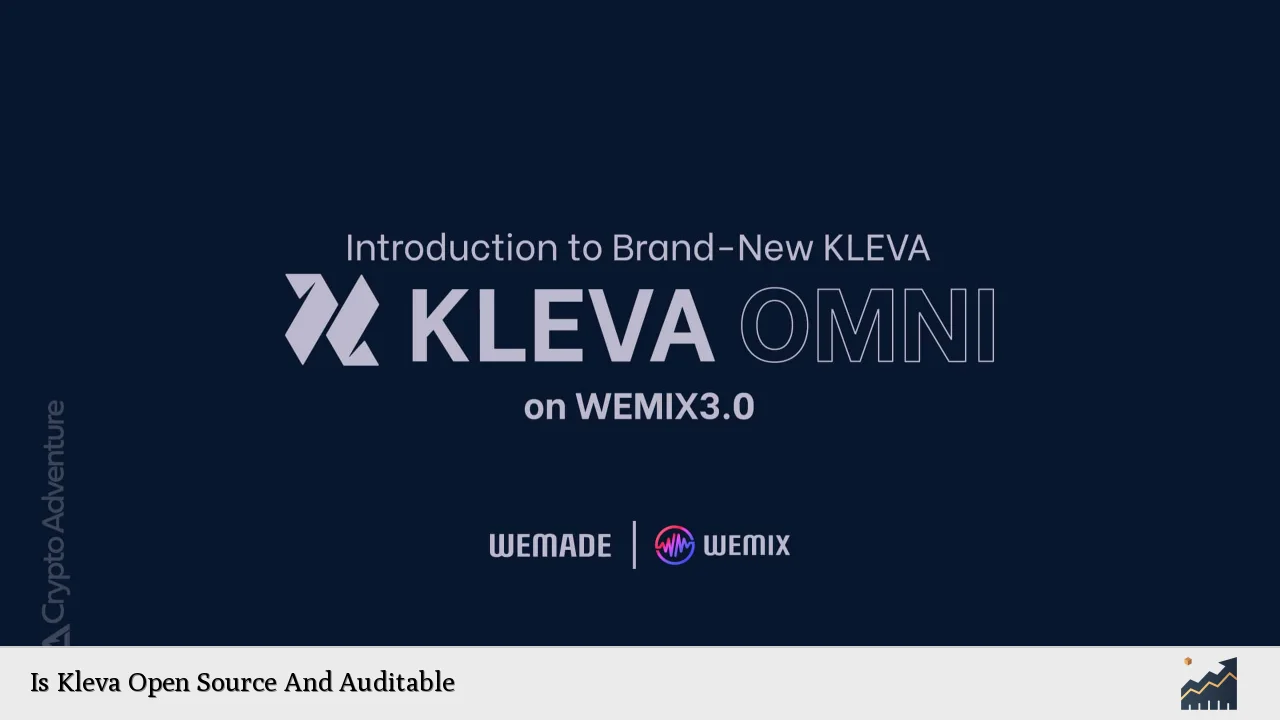Kleva Protocol is a decentralized finance (DeFi) service that operates on the Klaytn blockchain, specializing in leveraged yield farming. As the DeFi landscape continues to evolve, one of the critical aspects for users and investors is understanding whether platforms like Kleva are open source and auditable. This article delves into the nature of Kleva Protocol, its audit status, and the implications for users in terms of security, transparency, and investment potential.
| Key Concept | Description/Impact |
|---|---|
| Open Source | Kleva Protocol is not explicitly stated as open source in available documentation, which raises questions about transparency and community verification. |
| Auditing | Kleva has partnered with Hacken for security audits, enhancing trust through third-party evaluations of its smart contracts and protocols. |
| Community Engagement | The lack of open-source status may limit community contributions to code improvements and security assessments. |
| Security Risks | While audits can mitigate risks, proprietary code can still harbor vulnerabilities that are not publicly disclosed or easily verifiable. |
| Market Position | Kleva’s market cap is approximately $2.27 million, indicating a growing presence in the DeFi sector despite its transparency limitations. |
Market Analysis and Trends
The DeFi sector has seen explosive growth over the past few years, with increasing interest from both retail and institutional investors. Kleva Protocol, with its focus on leveraged yield farming, taps into this trend by providing users with opportunities to enhance their returns through liquidity amplification.
- Current Market Statistics: As of December 16, 2024, Kleva’s price is approximately $0.057294 USD with a market cap of around $2.27 million. The protocol’s trading volume has fluctuated significantly over the past month, reflecting broader market volatility typical in the cryptocurrency space.
- Trends: The DeFi market continues to evolve with innovations such as liquidity mining and yield farming becoming mainstream. However, concerns about security and regulatory compliance persist as high-profile hacks and scams have plagued the sector.
Implementation Strategies
For individual investors considering participation in Kleva Protocol or similar platforms, several strategies can be employed:
- Diversification: Spread investments across multiple DeFi projects to mitigate risks associated with any single platform.
- Staking and Yield Farming: Utilize Kleva’s offerings to earn passive income through staking or yield farming while being aware of the associated risks.
- Monitoring Audits: Stay informed about audit results from reputable firms like Hacken to gauge the security posture of Kleva.
- Community Engagement: Engage with online communities to gain insights into user experiences and potential issues related to the protocol.
Risk Considerations
Investing in DeFi projects like Kleva entails various risks:
- Smart Contract Vulnerabilities: Even with audits, smart contracts can have undiscovered vulnerabilities that may be exploited by malicious actors.
- Market Volatility: The cryptocurrency market is notoriously volatile; prices can fluctuate dramatically within short periods.
- Regulatory Risks: As governments worldwide scrutinize DeFi operations, regulatory changes could impact project viability and user access.
- Limited Transparency: The lack of open-source code means that potential vulnerabilities may not be visible or verifiable by the community at large.
Regulatory Aspects
The regulatory landscape for DeFi is rapidly changing. Authorities are increasingly focused on ensuring consumer protection and preventing fraud within the cryptocurrency space.
- Compliance Requirements: Platforms like Kleva must navigate complex regulations that vary by jurisdiction. Compliance with anti-money laundering (AML) and know-your-customer (KYC) regulations may become necessary as regulatory scrutiny increases.
- Future Regulations: Investors should remain vigilant regarding new regulations that could affect their investments or the operational capabilities of platforms like Kleva.
Future Outlook
Kleva Protocol’s future will largely depend on its ability to address security concerns while expanding its user base:
- Potential for Growth: With increasing adoption of DeFi solutions, Kleva has significant growth potential if it can enhance trust through transparency and robust security measures.
- Community Development: If Kleva decides to adopt an open-source model in the future, it could foster greater community engagement and innovation.
- Market Positioning: As competition intensifies within the DeFi space, maintaining a competitive edge through unique offerings will be crucial for Kleva’s sustainability.
Frequently Asked Questions About Is Kleva Open Source And Auditable
- Is Kleva Protocol open source?
Kleva Protocol does not explicitly state that it is open source, which limits community verification of its code. - Who audits Kleva Protocol?
Kleva has partnered with Hacken for security audits to enhance trust in its smart contracts. - What are the risks associated with using Kleva?
Risks include smart contract vulnerabilities, market volatility, regulatory changes, and limited transparency due to non-open-source status. - How does leveraged yield farming work?
Leveraged yield farming allows users to borrow funds to increase their investment size in liquidity pools, potentially amplifying returns but also increasing risk. - What should I consider before investing in Kleva?
Evaluate your risk tolerance, stay informed about audit results, and consider diversifying your investments across multiple platforms. - What are the current market trends affecting DeFi?
The DeFi sector is experiencing growth driven by liquidity mining and yield farming but faces challenges from security concerns and regulatory scrutiny. - How can I stay updated on Kleva Protocol developments?
Follow reputable crypto news sources and engage with community forums for real-time updates on project developments. - Is it safe to invest in protocols without open-source verification?
Investing in non-open-source protocols carries additional risks; thorough research and understanding of audit findings are essential before proceeding.
In conclusion, while Kleva Protocol offers innovative financial services within the DeFi space, its lack of clear open-source status raises important considerations for potential investors regarding transparency and security. Engaging with ongoing audits and monitoring market trends will be crucial for making informed investment decisions.

